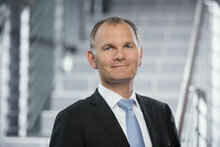The new remuneration system is more forward-looking and includes several new components. The basic level of remuneration will increase by up to 30 percent to €2.125 million for the Chairman of the Board of Management and €1.35 million for the remaining members of the Board of Management. Maximum annual remuneration will be capped at €10 million for the Chairman of the Board of Management and €5.5 million for the remaining members of the Board of Management. However, this can only be achieved if the Group performs exceptionally well. This reduces the maximum remuneration theoretically possible by up to 40 percent compared with the previous system.
Annual variable remuneration will only be paid out if ambitious targets are met. In the future, no annual variable remuneration will be paid out below an operating profit threshold of €9 billion including the proportionate operating result in China or a return on sales (ROS) of 4.0 percent.
The new remuneration system also takes into account the transformation of the workforce in new areas such as e-mobility, digitalization or mobility services.
Long-term share-based remuneration, which is also variable, will be based on a forward-looking measurement of success. This moves away from the retrospective basis of assessment used to date. The new long-term variable remuneration is granted in the form of virtual preference shares, the number of which varies according to the profit generated per share. Payment of long-term variable remuneration therefore depends on earnings per preference share and the share price. This will significantly strengthen the capital market orientation of variable remuneration. In making these changes, the Supervisory Board follows a recently clarified recommendation of the German Corporate Governance Code.
The new provisions are effective as of fiscal year 2017.








